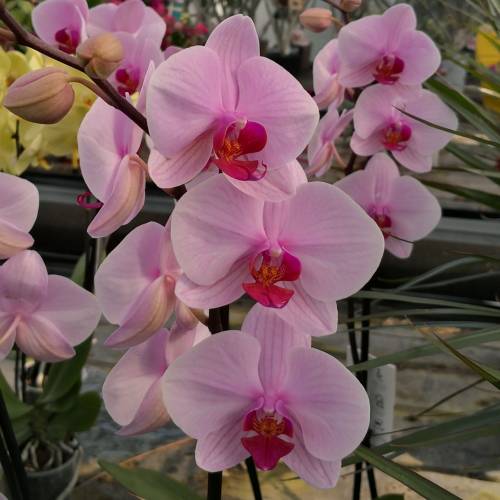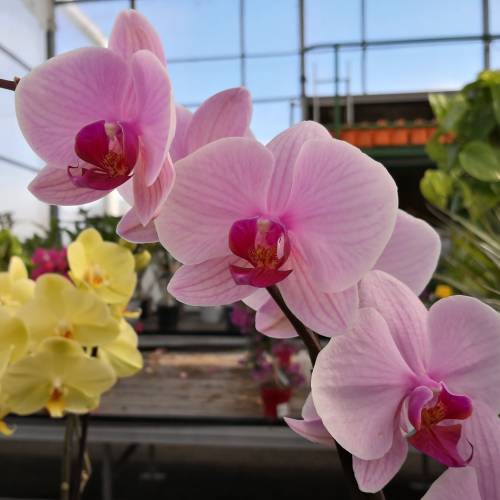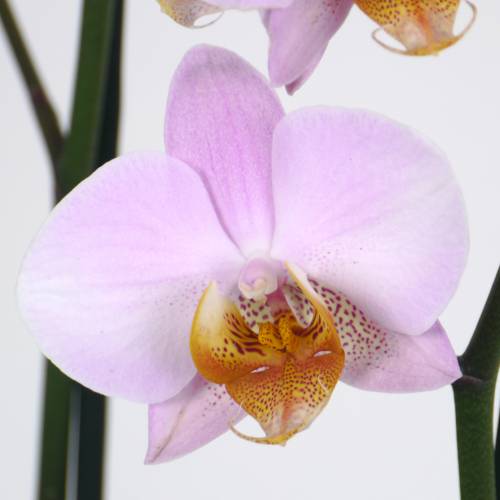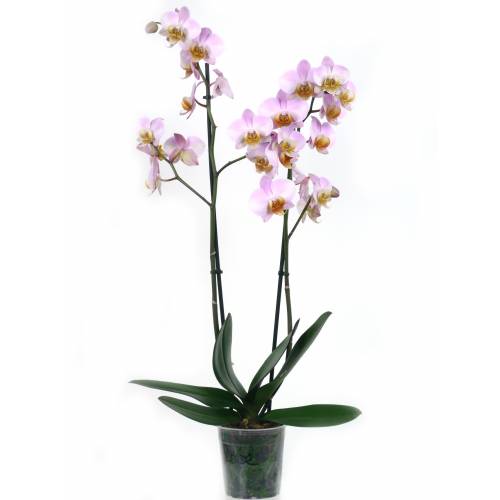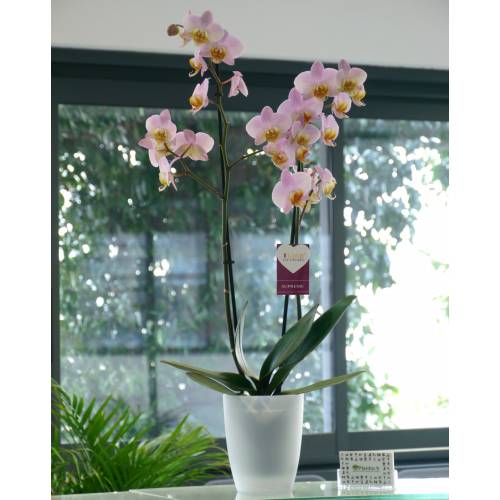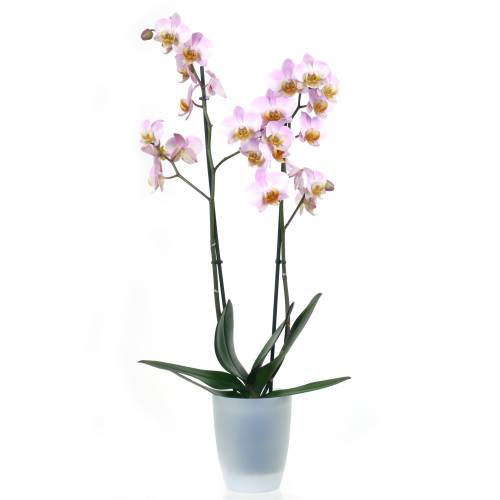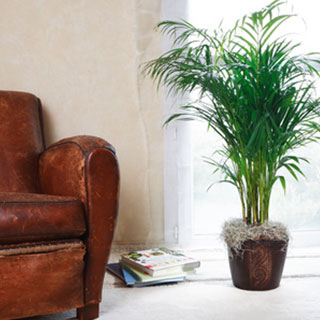
Plants
Orchid, Phalaenopsis Pink, Phalaenopsis / Phalaenopsis Rosea
-
30.24 € Moth Orchid Pink - Phalaenopsis
1754K - Available
-
28.08 € Moth Orchid Pink - Phalaenopsis
1754L - Available
-
Highly decorative and resistant, the flowers of this Orchid will brighten up you indoor spaces during 2 to 4 months.
Geographical origin: The Phalaenopsis originally comes from the tropical and sub-tropical areas of Asia. In its natural habitat, the Phalaenopsis is an epiphyte plant, meaning that it uses other plants to develop.
Site: In a bright spot but not directly exposed to sunrays.
Temperature: Sheltered from draught and at a minimum temperature of 16°C.
Looking after advice: Watering: The Phalænopsis is an easy to look after plant as it does not require a lot of watering. The compost is watered directly so as not to wet the base of the rot-sensitive's leaves. The roots of an well hydrated Orchid are pale green. When they are dehydrated, they become white so it is time to water them.
- The watering frequency is approximately 1 week.
- The watering must be abundant without, however, leaving water stagnate.
- Prefer demineralised water or at least non-calcareous water, at ambient temperature.
- From time to time, think about misting the foliage taking care of not wetting the flowers as this could stain them.
- If you observe the disappearance of roots or the appearance of rotten parts, it often means that the plant is suffering from excessive watering.
Repotting: After blossoming, when the roots are growing outside the pot, generally every 2 years.
- Take a more suitable pot and mix 80% of Pine barks with 20% coconut' fibres or peat.
Blossom:
- After the first blossom, to allow for a new stem to form or a flowering stalk, cut the stalk at two nodes from the bottom.
- At the end of the second blossom, the flowering stalk no longer having eyes (the buds) let it dry then cut it at leaves' level.

